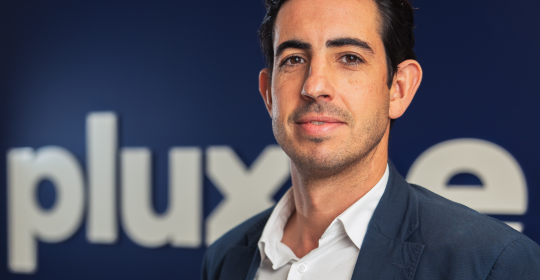There’s no longer any question about whether AI will reshape the workplace and tax function - that shift has already begun. From GenAI tools that automate document drafting to machine learning systems that help identify anomalies in tax data, finance functions are undergoing rapid transformation. But while the pace of technological change is remarkable, the real success of AI in finance will depend not on the tools themselves, but on the people who use them.
According to PwC’s latest AI Jobs Barometer, 66% of AI-exposed jobs are undergoing rapid skill changes - and workers who are already equipped with AI capabilities are seeing a 56% wage premium. This signals something significant: AI is not here to replace people. It’s here to augment their skills, free up time for strategic work, and unlock new value. But this potential will only be realised if organisations invest in helping their people adapt, learn and lead in this new era.
Transparency is key
AI adoption has as much to do with people, as it does with technology. And meaningful transformation starts by recognising that the most critical factor in any AI strategy is the team behind it.
GenAI may be new to many in tax and finance, but the forces driving this shift, from growing regulatory complexity to rapid digital innovation, shouldn’t be hidden from view. The best way to build trust in the technology is through clear and consistent transparency about its capabilities and limitations.
Leaders must help their teams understand not just what AI is, but why it matters: how it’s being used, where the data comes from, and what opportunities and risks it creates. This is particularly important in the tax function, where regulatory confidence and professional judgement are non-negotiable. When employees are given that wider context, they’re better placed to engage with change, and more likely to support it.
But communication can’t be one-way. Building confidence in AI means establishing open channels for teams to ask questions, voice concerns, and share what’s working (or not). This kind of “citizen-led innovation” (as PwC calls it), where teams are encouraged to test new ways of working, is crucial to building a culture of trust and experimentation.
It also means rethinking how talent is identified, developed and deployed. A skills-first approach allows organisations to uncover capabilities that may be hidden by job titles. More than a third of employees in the PwC survey say they have skills that don’t show up on their CVs, and in one case, a company uncovered 40% of the analyst skills it needed within its existing workforce.
Finance and tax leaders should be actively looking across teams to identify those with aptitude for AI-related tasks, whether its data analysis, systems thinking, or automation process design, and create opportunities for those employees to step forward and shape how new tools are used.
Leadership matters more than ever
Leadership sets the vision and tone, communicates clearly, and creates the conditions for change to take root.
Leaders must foster an environment where questions are welcomed, feedback loops are continuous, and assumptions are challenged. Crucially, AI transformation must also take human needs into account. Retaining AI-skilled talent, for example, goes far beyond offering competitive compensation. Research from McKinsey shows that these employees place high value on relational factors - flexibility, meaningful work, and leaders who genuinely care about their wellbeing. If AI is to reshape work for the better, then the work itself must evolve in tandem.
This means reimagining jobs to be more human-centric and designing roles that allow employees to lean into the creative, collaborative and higher-cognitive skills that machines can’t replicate. It also means rethinking flexibility. With AI streamlining many routine tasks, there’s an opportunity to shift away from outdated measures of productivity like the 40-hour week, and toward outcome-based models that reflect the reality of modern work. Employees should feel that their contributions are judged by impact, not input.
Future-ready means people-ready
The tax function isn’t immune to change fatigue. Which is why smart organisations are now rethinking how they hire, train, and develop talent. The next generation of finance professionals must combine technical fluency with adaptability, critical thinking, and cross-functional collaboration.
Ultimately, success in this space is about creating a team that understands how to apply new tools in context. Because at the end of the day, smarter systems alone don’t drive transformation. Smarter teams do.






